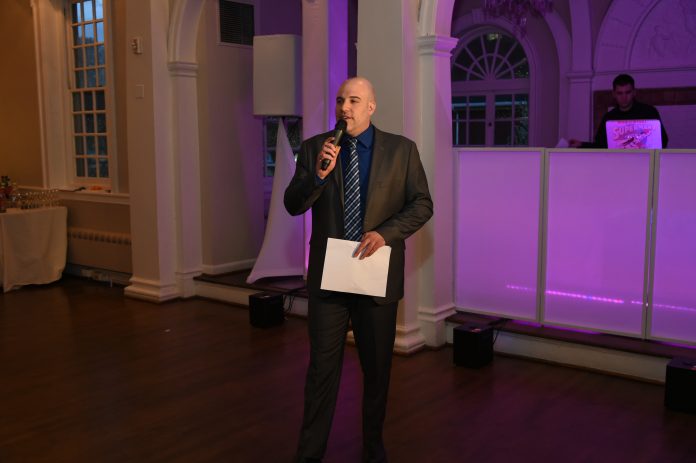Ross Akselrad has spent the last 30 years building from scratch his pride and joy, Pulse Entertainment. The Ivyland-based “one-stop-shop” has provided music, photography and all the bells and whistles to make more than 15,000 weddings, mitzvahs and corporate events unforgettable affairs.
But almost overnight, his business – and the whole entertainment industry – came to an abrupt halt. With Pulse’s entire calendar forced to be postponed or canceled because of COVID-19 restrictions, Akselrad estimates a loss of $500,000 in sales, and $1 million in potential business this year.
“I’d like to work. I’d like to provide for my family. I’d like to not have a forbearance on my mortgage,” he said. “Not doing the events means we haven’t gotten a dime since the beginning of March and at this point, we’re living off of savings. We’re living off what little unemployment we got because a lot of us business owners didn’t get it for the first little while until they invented the PUA with the CARES Act.”
When the pandemic first hit in March, Akselrad was optimistic. Events scheduled to take place during the first two weeks of Gov. Tom Wolf’s stay-at-home order would simply be postponed.
“It’s like it was a blizzard. We just had to reschedule,” he said.
However, those two weeks quickly turned into an indefinite shutdown. Rather than postponing their parties, clients wanted to cancel altogether and receive a refund. Even if COVID-19 conditions improved, they were nervous to be around other people. Akselrad had no choice but to furlough his staff.
Still, the biggest blow came in July when, after a mere week of being allowed to host indoor events at 50 percent capacity, Wolf changed the restriction. While restaurants could operate at a lessened 25 percent capacity, events could welcome only 25 people … including staff.
“We did one event in the beginning of July, a wedding, and a week later, the governor took it all away,” Akselrad said. “So, it was, you go, and then you’re stopped again.”
Akselrad stressed that he’s not political, and agrees with many of the safety measures implemented by Wolf.
“But I’m a common-sense kind of guy. There’s no continuity with anything coming from the government,” he said.
For example, he’s baffled that many college campuses are reopening, welcoming thousands of students from across the country. Yet he cannot host a wedding, where the majority of guests are family and friends who have already been in contact throughout quarantine. He added that most college classrooms are smaller than the average wedding venue.
“I’m all for reopening safely with guidelines, but there’s nothing that correlates for me,” Akselrad said.
In June, he co-founded the Live Events Coalition of Philadelphia, part of a national coalition that advocates for employees of the live events industry. The group penned a 40-page document on how to safely reopen indoor venues and tried to get it in front of lawmakers.
“But no one wants to hear it. A lot of them are just very case-driven,” Akselrad said. “There’s got to be a way we can safely open with the right measures. It’s a ramp up. How about we start with 75 people, and after a month maybe that goes to 100? Can we do that?”

Nationally, he estimated that 12 million people in the industry are currently out of work, with 1 million in the greater Philadelphia area.
“That’s the chefs, the servers, the photographers, the video people, the DJs, the meeting planners. With us being the first to go, we’re really, truly going to be the last to come back because everything that we do requires a gathering,” Akselrad said.
The coalition rallied at City Hall in Philadelphia several weeks ago to ask that the extra $600 per week unemployment aid continue. It also plans to hold a “Red Out” day on Sept. 1, during which buildings will change their colors to red, symbolizing how the industry is still shut down.
“All of our workers need that to survive until we can get back to work, otherwise my best guys will have to go get a job elsewhere,” said Akselrad. “When I finally can come back to work, I’m going to have no staff because they moved on. It puts me in an even bigger hole as a business owner, and our industry is going to be scrambling for people that don’t exist because a lot are out of the industry now.”
While Akselrad acknowledged that outdoor events are an option, he predicts they’ll come to an end by October as the weather turns colder. He also anticipates that the industry will continue to struggle until a vaccine is available.
“Maybe we’ll see some normalcy in 2021. If I had to place bets, I’d say the earliest would be spring. But realistically, I think it might be another year,” he said. “It’s a crazy time right now. I go to work every day and I’m working harder than I ever did for little to no money. I see everybody opened and I’m twiddling my thumbs trying to wonder when I’m going to be open.”
Samantha Bambino can be reached at [email protected]


